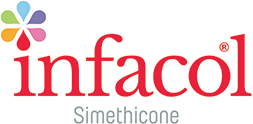In the modern age, where environmental awareness is more crucial than ever, many new parents are seeking ways to minimize their carbon footprint for the sake of their children’s future. Eco-friendly parenting begins with the choices we make, from the food we consume to the products we buy for our little ones. This blog post is dedicated to guiding you through the selection of sustainable baby products, helping you make choices that are not only better for the environment but also safe and beneficial for your baby.

Understanding the Importance of Sustainable Baby Products
The journey into parenthood often comes with an overwhelming amount of choices, including deciding which products to use for your baby. Some baby products can be made from unsustainable materials that not only harm the environment but also do not last long and can be costly in the long run. By choosing eco-friendly alternatives, parents can reduce their environmental impact while ensuring their baby’s surroundings are as natural as possible.
Key Areas for Eco-Friendly Choices
Nappies
Nappies are a necessity for babies, but traditional disposable Nappies are a significant contributor to landfill waste. Eco-friendly alternatives include biodegradable Nappies or cloth Nappies.
Feeding
When it comes to feeding, opting for products made from natural materials can make a big difference. Glass or stainless-steel bottles, bamboo plates, and utensils are excellent sustainable alternatives to plastic. If breastfeeding, consider eco-friendly nursing pads made from organic cotton or bamboo.
Clothing
Babies grow quickly, and it can be tempting to buy an abundance of cute outfits. However, choosing a more minimalist wardrobe for your baby with clothing made from organic cotton or other sustainable materials can minimise environmental impact. Additionally, participating in or organising clothing swaps with other parents can be a great way to reuse and recycle baby clothes.
Toys
When selecting toys, look for those made from natural materials such as wood, organic cotton, or bamboo. Not only are these materials more sustainable, but they are also often long lasting and can be passed on to other children when outgrown. las.
Skincare
Babies have delicate skin, and choosing skincare products made from natural, organic ingredients can help avoid exposure to synthetic materials-. Many eco-friendly brands offer baby skincare products that are gentle, effective, and made with sustainable practices.
Tips for Making Eco-Friendly Choices
- Research Brands: Look for brands that are transparent about their manufacturing processes and committed to sustainability.
- Read Labels: Understand the materials and ingredients in the products you’re buying. Opt for natural, organic, and sustainably sourced whenever possible.
- Buy Less, Choose Well: Investing in quality products that last longer can reduce waste and save money in the long run.
- Support Local: Buying from local producers can reduce carbon emissions associated with transportation and supports your local economy.
- Recycle and Reuse: Whenever possible, choose products that can be
recycled or reused to minimise waste.
Conclusion
Choosing sustainable baby products is a crucial step in eco-friendly parenting. It not only contributes to a healthier planet but also ensures a sustainable, more natural environment for our children. By making informed choices and opting for eco-friendly alternatives, parents can make a significant impact on the health of the planet.



